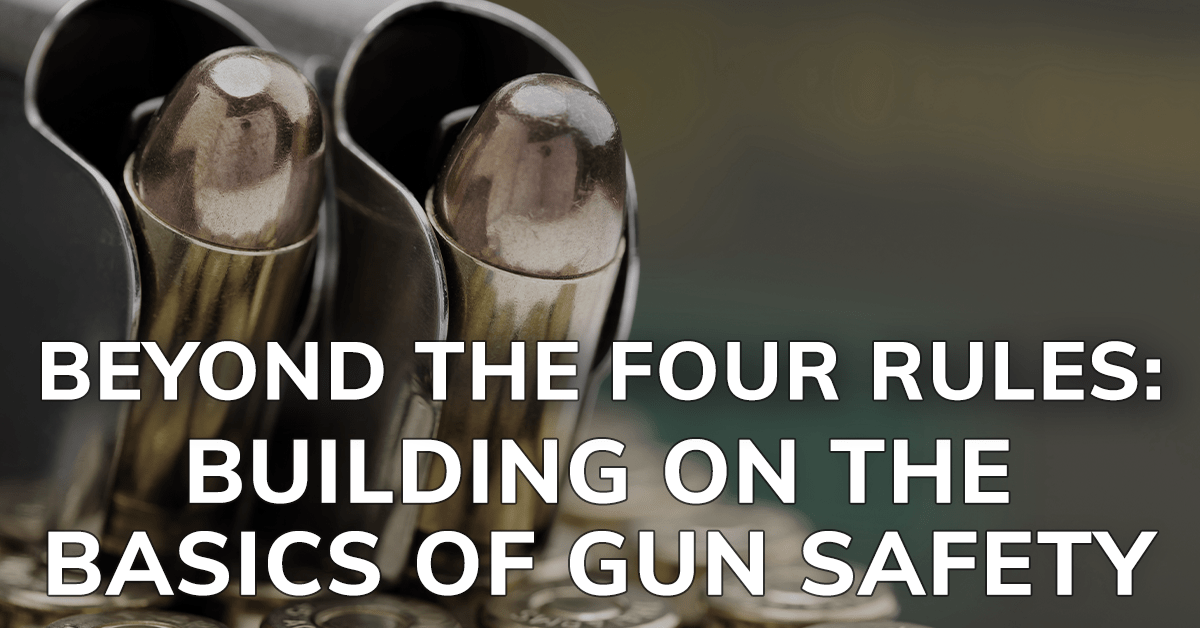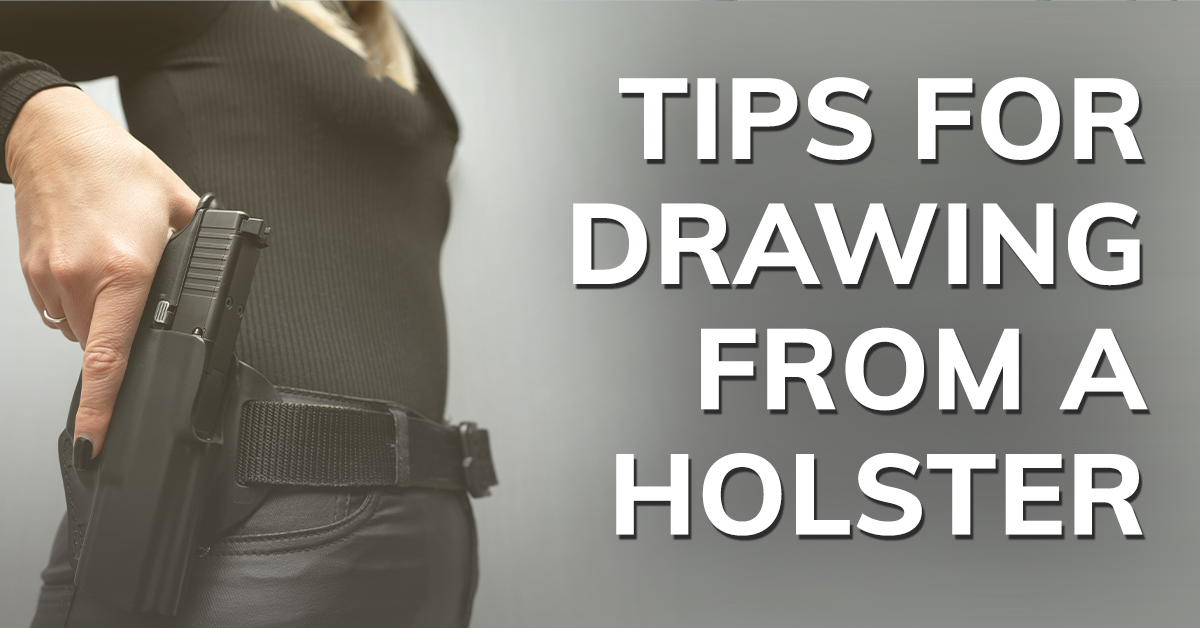Your Cart is Empty
Orders Over $100 Ship FREE (USA)!
Menu
-
- CONCEALED CARRY
- GUN HOLSTERS
- CONCEALED CARRY PURSES
- CASUALLY CONCEALED APPAREL
-
(Apparel with holster pockets or concealed-carry features)
- PARTS & GEAR
- RANGE STYLE
- APPAREL
- JEWELRY
-
E-GIFT CARDS
-
Gift shopping & not sure about size or style? Give a gift card instead!
-
- GIFT IDEAS
- WHAT'S NEW?
- EXPLORE
- Login
- USD


 While it sounds easy to do, “finger discipline” may be one of the more difficult safety rules to make a habit. Your fingers and thumb are meant to work together to grasp something. When your other three fingers grasp the grip of your firearm, your trigger finger wants to grasp something too. You might hear this referred to as sympathetic grip or sympathetic muscle reaction. The only place there is room to grasp is inside the trigger guard. So you have to learn not to grasp with that finger, but rather, to leave it extended. When learning this skill, you will have to pay close attention at first. After much practice, it will become more natural. In fact, you will notice that you begin to extend that index finger all the time, such as when you use a bottle of spray cleaner!
While it sounds easy to do, “finger discipline” may be one of the more difficult safety rules to make a habit. Your fingers and thumb are meant to work together to grasp something. When your other three fingers grasp the grip of your firearm, your trigger finger wants to grasp something too. You might hear this referred to as sympathetic grip or sympathetic muscle reaction. The only place there is room to grasp is inside the trigger guard. So you have to learn not to grasp with that finger, but rather, to leave it extended. When learning this skill, you will have to pay close attention at first. After much practice, it will become more natural. In fact, you will notice that you begin to extend that index finger all the time, such as when you use a bottle of spray cleaner! If you are not ready to pull the trigger yet or your sights are not on target, extend your index finger on the slide or frame of the gun. It is best to get your finger up as high you can and as far away from the trigger guard as possible. You have probably seen some shooter rest that index on the front of the trigger guard. This is not a great idea because if you are moving and trip, or if you get startled such as in a personal defense situation, it is all too easy for that index finger to slip off the trigger guard and onto the trigger. Also, if you are in a firearms course on the range with multiple people, your instructor will likely be observing from your left. If your finger is high on the slide, the instructor immediately can tell that your finger is not on the trigger when it shouldn’t be.
If you are not ready to pull the trigger yet or your sights are not on target, extend your index finger on the slide or frame of the gun. It is best to get your finger up as high you can and as far away from the trigger guard as possible. You have probably seen some shooter rest that index on the front of the trigger guard. This is not a great idea because if you are moving and trip, or if you get startled such as in a personal defense situation, it is all too easy for that index finger to slip off the trigger guard and onto the trigger. Also, if you are in a firearms course on the range with multiple people, your instructor will likely be observing from your left. If your finger is high on the slide, the instructor immediately can tell that your finger is not on the trigger when it shouldn’t be.

